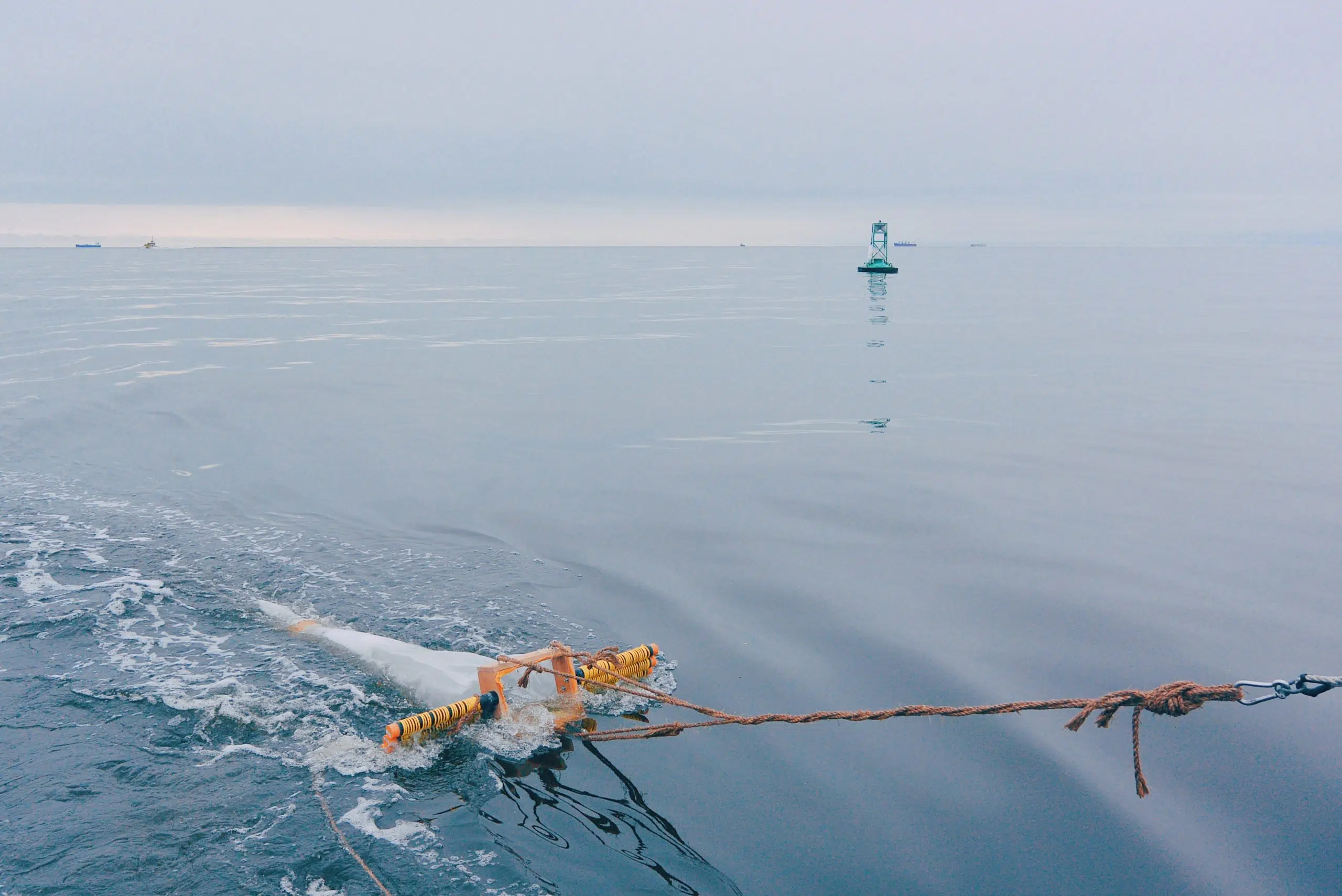
ACAP Saint John's surface water trawl trawling for microplastics in Saint John Harbour in 2018. Image supplied by ACAP.
ACAP Saint John has been researching the impact of microplastics in Saint John Harbour since 2018.
Microplastics don’t degrade so they stay in the environment for hundreds of years.
Shauna Sands of ACAP said the Halifax-organization COINAtlantic provided some funding for the research involving Reversing Falls in Saint John.
“We were able to look at preliminary microplastic samples in the inner harbour, just above the falls and below the falls,” Sands said.
Sands said global research on microplastics is not comparable right now because standardized methods do not yet exist.
“So hopefully that can be more resolved and we’re able to have a more uniform method and we’re able to look at what these effects might be. We know that plastic in general is not good for the environment and it’s not a natural component,” Sands said.
ACAP Saint John hosted a webinar on the subject of microplastics on Thursday night with another scheduled for Saturday morning.
Sands said they plan to offer the webinars again in the spring.
How much plastic is in the ocean? How does single-use-plastic impact our environment? What research is currently being done in the maritimes on microplastics🔬?
Join us for a webinar on Identifying Microplastics in the Saint John Harbour on Jan 27 (10am) OR Jan 29 (11am)📆 pic.twitter.com/l9YNnjo163
— ACAP Saint John (@ACAPSaintJohn) January 17, 2022







